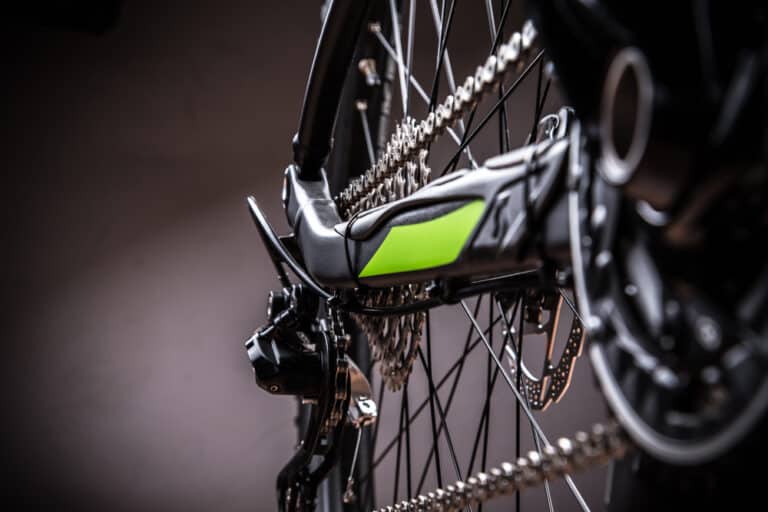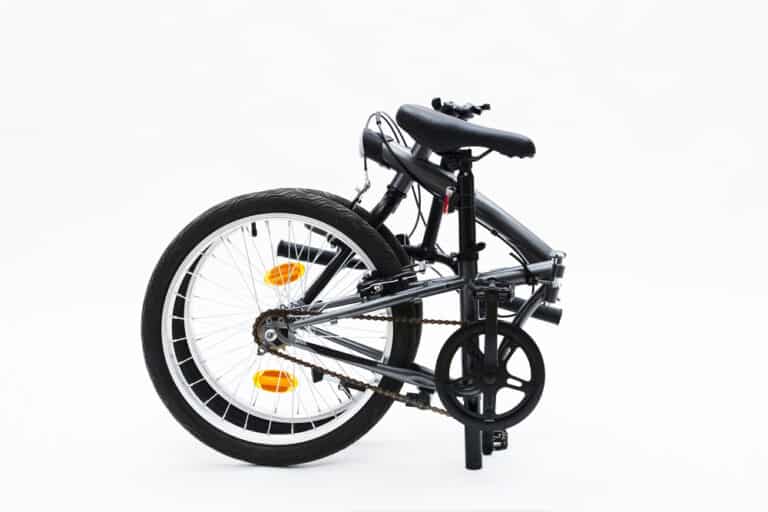Can A Mountain Bike Keep Up With A Road Bike?

Mountain bikes and road bikes are similar vehicles, but they are intended for use on drastically different surfaces. These bikes are designed for very different styles of riding and very different riding conditions, but many cyclists wonder what the outcome would be if a typical road bike and a mountain bike were pitted against each other on the same terrain.
Mountain bikes have a hard time keeping up with road bikes on the road unless the cyclist is exceptionally fit. Road bikes will achieve significantly better speeds on downhills and flats. Mountain bikes are, however, far superior off-road and on rough roads.
If you are planning a ride with friends who use a different bike to yours, or if you want to try out a different style of bike, you may wonder how a mountain bike would keep up with a road bike in different situations. Let’s explore these two bikes to find out they handle the road compared to one another.
Can Mountains Bikes Keep Up With Road Bikes?
Mountain bikes and road bikes are designed for two very different terrains. Their form, structure, and features are the opposite of one another, as the mountain bike is meant for rough and rugged trails, while road bikes are meant for achieving high speeds on smooth roads.
This leads many to wonder if a mountain bike can keep up with a road-focused bike. The answer here is somewhat obvious to some, but the reality is that these bikes cannot be compared in only one scenario.
The mountain bike and road bikes both have significant strengths and weaknesses. Therefore, in order to find out if a mountain bike can match a road bike, we must explore various scenarios.
Let’s find out what happens if you put a mountain bike up against a road bike on a smooth road, on hills, on flat ground, and on trails.
Mountain Bike Vs. Road Bike On Smooth Roads
Mountain bikes have wide, knobby tires, heavy frames, wide seats, and wide handlebars and are designed with a low center of gravity for better maneuverability. Road bikes are made with thin tires, a lightweight frame, and high gear ratios and are designed with aerodynamics in mind.
All of this means that a mountain bike pitted against a road bike on smooth roads is likely to fall short of the road bike’s capabilities.
Mountain bikes are simply not as fast as road bikes, but if you are fit enough and if you peddle hard enough, you may be able to stay somewhat close to a road bike.
However, as soon as the road bike reaches a fast gear, no mountain bike can keep up.
Mountain Bike Vs. Road Bike On Dirt
The design of a mountain bike makes it ideal for use on trails, dirt roads, single tracks, and bumpy terrain. The road bike, however, struggles on anything other than asphalt.
For this reason, a mountain bike is the superior vehicle for use off-road. A mountain bike will not only keep up with a road bike when the road gets rough, but it will far surpass the road bike in stability, maneuverability, balance, and speed.
These bikes are most at home when they are used on the terrain they are designed for.

Mountain Bike Vs. Road Bike On Hills
Now that we have the obvious answers out of the way, many cyclists wonder how well these types of bicycles compare in specific riding scenarios, such as riding on hills.
The reason why this is an important comparison is that these bikes have different gearing systems, seating positions, peddle positions, and aerodynamics, which all contribute to how well the bike can perform when riding on steep hills.
The answer here comes down to the rider and the bike. A very fit cyclist on a lightweight mountain bike can definitely keep up with an average rider on a road bike when riding on hills.
The differences in gear mechanisms do not help much one way or the other when tackling a steep hill. The same is true for aerodynamics. This means that the rider who reaches the top first is likely to e the fitter of the two.
However, when the riding shifts downhill, the road bike is at an advantage due to superior aerodynamics and high-speed control, as well as less rolling resistance due to thinner and firmer tires.
The gears on road bikes allow the rider to gain more speed on a downhill, but the gears on a mountain bike reach their limits sooner, meaning the road bike rider will be able to peddle to higher speeds on their road bike.
This ultimately means that the road bike will likely gain an overall competitive edge over a mountain bike on hilly terrain, so long as the road surface is smooth.
Mountain Bike Vs. Road Bike On Flats
Comparing the performance of a mountain bike and a road bike on flat ground is another interesting topic, as the outcome again is reliant on the fitness and skill of the rider.
A very fit mountain bike rider can probably keep with a road bike without an issue, but if the road bike rider is very fit as well, the better gearing ratios, reduced rolling resistance, and more efficient aerodynamics of the road bike are likely to result in higher speeds form the road bike.
This means that a mountain bike will have a hard time keeping up with a road bike used by a fit cyclist, even if the rider of the mountain bike is very fit as well.
Conclusion
The reality is that mountain bikes are no real match for road bikes when ridden on the road, but they will run circles around a road bike that is taken off-road. These bikes thrive in their intended use-case and struggle when used for anything else, especially when compared to one another.
If you want to ride on the trails and on the road, the best option is to go for a hybrid bike or to use a mountain bike for the trails and a road bike for the roads. These options will produce far better results than any other options.







